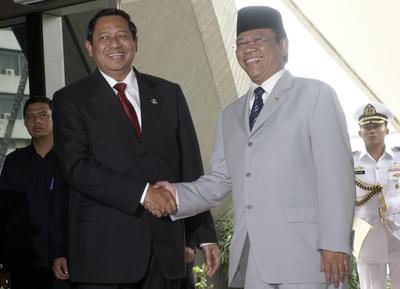Few bills have been passed (16 out of a target of 70), while its members continue to be defensive in the face of public outcry over allegedly luxurious facilities, overseas trips and corruption cases. It is no surprise that numerous polls suggest high public dissatisfaction with the DPR.
Some of these criticisms may have merit, but a closer look at the institutional and political dynamics within the DPR suggests that assessing parliamentary performance is not so straightforward.
First, constitutionally, a bill must be formulated and discussed by both the legislative (the DPR) and executive branches (the President) of government. This process can often be highly complicated and slow, especially with the politicking that takes place within the government (ministries) itself.
Take the ongoing discussion of the Social Security Provider Agency Bill. Many MPs are frustrated with the complex and slow process of working with eight ministries — each with their own bureaucratic and political interests. Not to mention each ministry has its own interpretation of the Bill and how it relates to other laws and bills.
So when one considers that the government — as the ‘co-producer’ of a bill — is often not cooperative and has its own interests, the small number of bills passed also reflects the executive’s sluggish procedures and processes in working with the Parliament.
Second, critics overlook the fact that the DPR has a number of internal barriers that impede its performance. To name a few: size and quality of the support system (expert staff and secretariat staff), poor documentation for public hearings and working trip reports, as well as a lack of effective mechanisms to evaluate the policy impact of every hearing. Many MPs and their staff often mention how factional leadership (fraksi) and parties have not yet provided significant policy input to support MP and DPR performances.
Third, critics tend to focus on the number of bills passed but fail to take into account the whole process of policy formulation and deliberation within the DPR.
A positive development is that there appears to be a more responsive and inclusive policy formulation and deliberation process within the DPR. There is growing awareness of the importance of responding to public controversies, channeling constituents’ aspirations, as well as involving civil society organisations in policy formulation and deliberation. It is quite common for MPs and committees to receive policy input directly from academics, media and local NGOs through formal public meetings and direct relationships.
But, on the other hand, this policy formulation and deliberation process is often pre-empted by growing intervention from the President’s Joint Secretariat (SETGAB), a communication forum for President Susilo Bambang Yudhoyono’s coalition parties to support the government’s agenda in Parliament. While its effectiveness in ensuring a unified stance among the coalition parties is debatable, the growing involvement of the Secretariat in deciding key policy and parliamentary affairs bypasses existing mechanisms within the DPR and in its relationship with the executive. Such an ‘extra parliamentary arena’ arguably reduces the importance of the existing deliberation and policy formulation processes within the DPR itself.
Finally, critics often fail to take into account the nature of the DPR as a forum for political contestation between and within parties, as well as among individual politicians. The nature of Indonesia’s presidential system coupled with a large number of parties has often exacerbated the contest, which further complicates the deliberation and policy formulation within the DPR.
Because of the multiplicity of political parties represented in the DPR, there is often little predictability and consistency governing the relations among them. This even applies to members of the ruling coalition in supporting the government’s policies or bills. The most recent controversy over the tax mafia inquiry, for instance, pitted the Democrat Party with its coalition partners, mainly Golkar and PKS, while Gerindra, generally known to be in the opposition camp, actually supported the Democrat Party’s stance.
To complicate matters, many strategic bills and issues are often more ‘centrally’ decided by the party through their fraksi leadership, while less strategic bills and issues are often ‘decentralised’ to the leadership of DPR committees and individual MPs. In the Election Bill, for instance, party leaders and the parties’ national leadership board very much determined the parties’ stance. Meanwhile, in less strategic bills, such as the Boy Scout Bill, policy formulation and decision were more decentralised in the DPR committee. Of course, the line between strategic and non-strategic is occasionally arbitrary.
Overall, a more nuanced and balanced assessment of the performance of Indonesia’s parliament is necessary, one that takes into account all the complexities. Otherwise, we are just telling one side of the story.
Hazelia Margaretha is a Senior Research Officer with the Centre for Democratic Institutions (CDI), Australia National University, and National Democratic Institute (NDI) for International Affairs. This is her personal opinion.

